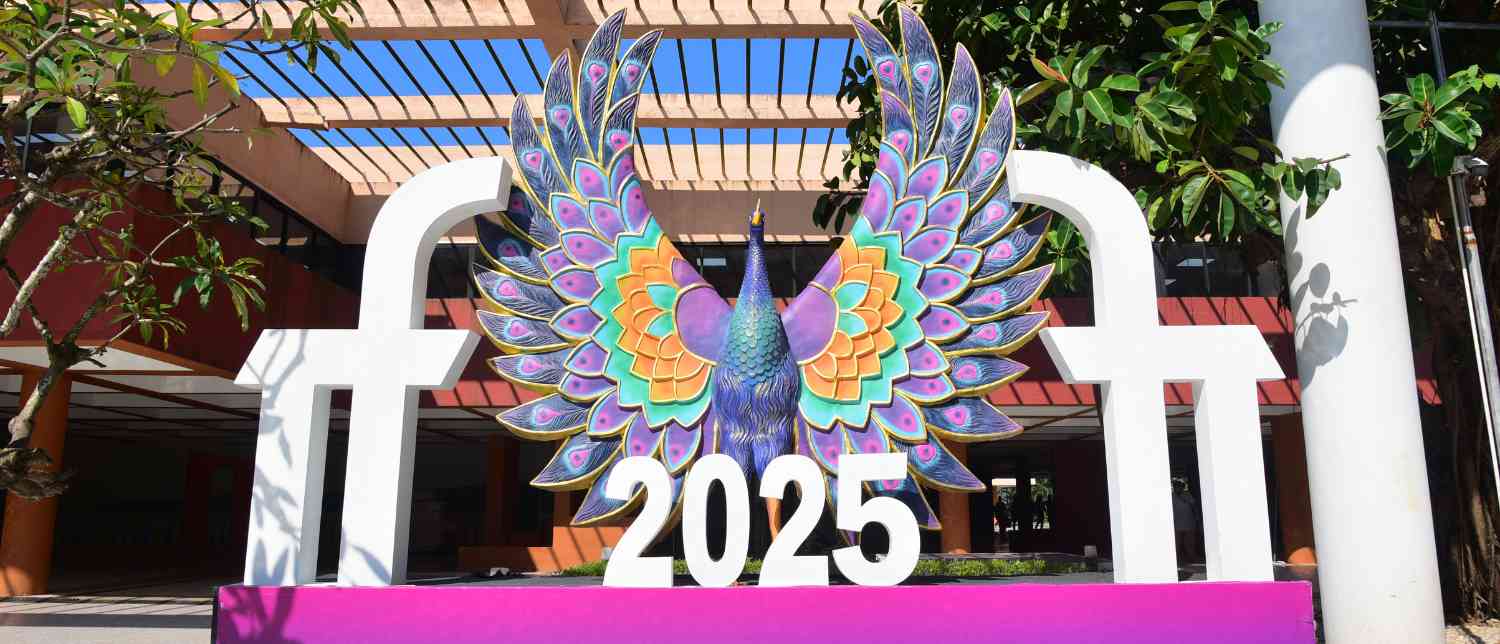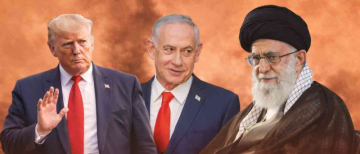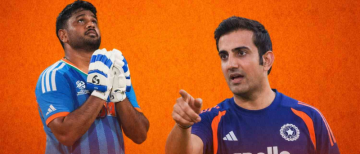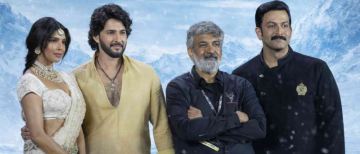The 56th International Film Festival of India (IFFI) unfolded yet another emotionally stirring chapter as two remarkable films—Karla and Renoir—captivated cinephiles with their profoundly moving portrayals of childhood. From the quiet, unwavering strength of a 12-year-old girl confronting her abusive father in a Munich courtroom, to the poetic, whimsical imagination of an 11-year-old navigating the complexities of life in Tokyo, the festival offered an unfiltered look at the triumph, tenderness, and turbulence that shape young lives.
In a riveting press conference, Christina Theresa Tournatzès, director of Karla, and Christophe Bruncher, co-producer of Renoir, opened up about the powerful stories behind their acclaimed films, the inspiration that drove them, and the emotional universes their young protagonists inhabit. Their insights brought to light not only the creative process but also the universal themes that bind these cinematic journeys—resilience, innocence, vulnerability, and the extraordinary ways children make sense of a world not always kind to them.
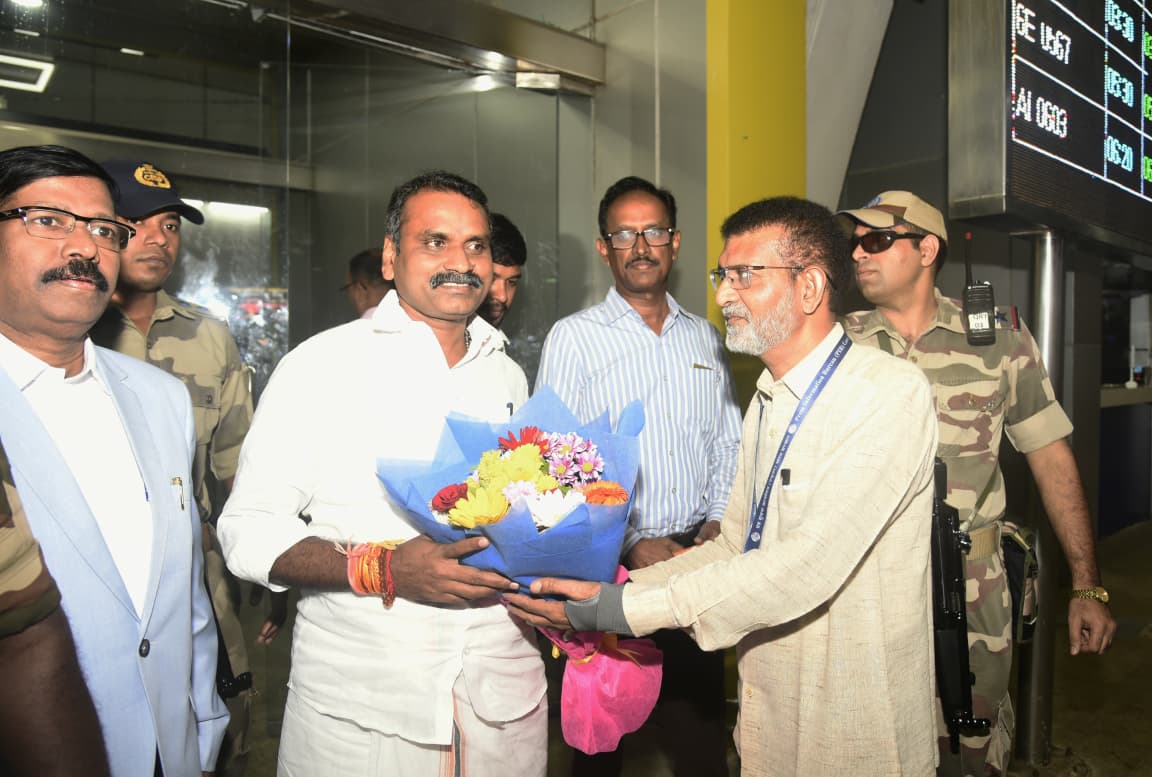
Karla: A Child’s Unflinching Fight for Truth and Dignity
Director Christina Theresa Tournatzès spoke passionately about the delicate and emotionally demanding process of bringing Karla to the screen. The film, a real-life drama set in Munich in 1962, recounts the harrowing story of 12-year-old Karla, who gathers extraordinary courage to file charges against her abusive father after years of sexual assault. What follows is a deeply challenging courtroom battle, one shaped by a justice system that historically ignored or minimized the voices of child victims.
Tournatzès explained that the trial—relying on only two witnesses—becomes a fraught battle of “word against word.” For Karla, each moment in the courtroom is a confrontation not just with her father, but with the trauma she has silently carried. Her hesitations, silences, and struggle to articulate her pain form the emotional backbone of the film.
The narrative unfolds strictly from the child’s perspective. Tournatzès described how this choice was essential in preserving dignity and authenticity. Central to the story is the role of the judge, the only adult who truly listens to Karla—giving her space, validation, and the safety she needs to reclaim her voice.
The film’s roots are deeply personal. Tournatzès shared that a relative of the real Karla grew up hearing this story and eventually transformed it into a lifelong creative mission. Through this generational commitment, Karla’s truth found its path to the screen.
Highlighting the weight of its subject, the director emphasized the universal relevance of the film. Sexual abuse against children remains a pervasive global issue, and Karla reframes that conversation by centering the survivor’s narrative while consciously steering away from voyeurism.
Tournatzès also reflected on the emotional response to the film’s premiere in Munich, describing it as a “home run,” and shared her excitement about presenting Karla to Indian audiences at IFFI for the first time. She spoke fondly of working with the 12-year-old lead, prioritizing a nurturing, trauma-informed environment that allowed the performance to remain instinctive, honest, and emotionally impactful.
Renoir: Childhood Wonder, Complexity, and the Poetic Magic of Imagination
In an equally engaging exchange, co-producer Christophe Bruncher offered a window into the enchanting world of Renoir, a film that draws viewers into the imaginative, emotionally layered universe of 11-year-old Fuki. Although the title nods to the celebrated French painter, Bruncher clarified that the film is “not a biopic.” Instead, it mirrors the Impressionist approach—fragmentary, delicate moments that come together to form a vivid emotional portrait.
Set in Tokyo in 1987, during Japan’s buoyant economic boom, the story follows Fuki as she navigates the emotional turbulence surrounding her: a father battling terminal illness, a mother buckling under stress, and the uncertainties of growing up too soon. In response, Fuki carves out her own escape—a magical inner world where imagination, telepathy, and playful experimentation act as her survival tools. One of the film’s most charming sequences even shows her dialing a dating hotline, a humorous yet poignant attempt to understand adult emotions.
Bruncher reflected that the film captures how children make sense of overwhelming realities through their own internal logic. Fuki’s imagination, he said, is less an escape and more a mechanism of understanding—a way to decode the shifting world around her.
A highlight of Renoir is the young actress who brings Fuki to life. Bruncher praised her as a “revelation”—instinctive, technically poised, and emotionally resonant. Although she narrowly missed the Best Actress award at Cannes, she went on to win Best New Performer at the Asia Pacific Screen Awards, establishing herself as a formidable new talent.
At its core, Renoir is a gentle yet powerful exploration of childhood—the intersection of innocence and awareness, play and pain, imagination and reality.
Film Specifications
1. Karla
Germany | 2025 | German | 104 minutes | Colour
Karla is a stirring real-life drama set against the backdrop of 1962 Munich. Centered on a 12-year-old girl seeking protection from years of sexual assault, it follows Karla as she bravely takes legal action against her abusive father. She insists on telling her story in her own way, supported by a judge who becomes her singular ally in a system that often overlooks survivors. The film delves into sexual trauma with sensitivity, portraying Karla’s fight for dignity without exploitation.
2. Renoir
Japan, France, Singapore, Philippines, Indonesia, Qatar | 2025 | Japanese | 116 minutes | Colour
Set in 1987 Tokyo during Japan’s economic surge, Renoir follows 11-year-old Fuki, a sensitive girl grappling with her father’s terminal illness and her mother Utako Okita’s growing emotional strain. As the family faces financial and emotional turmoil, Fuki retreats into a world of magical thinking—telepathy, imagination, and even dialing a dating hotline. Her journey through loss, friendship, and the blurred boundaries between childhood and adulthood forms the heart of this poetic tale.
Three Distinct Cinematic Universes Unfold at IFFI: ‘Nilgiris,’ ‘Mu. Po. Bombilwadi,’ and ‘Sikaar’
The festival’s dynamic storytelling landscape widened further during another lively press conference featuring the creators of Nilgiris: A Shared Wilderness, Mukkam Post Bombilwadi, and Sikaar. The conversation brought together emotion, humour, and creative insights, reflecting the diversity that defines Indian cinema.
1. ‘Sikaar’: Honouring Zubeen Garg and Charting an Assamese Milestone
The session began on an emotional note with director Debangkar Borgohain remembering musician and actor Zubeen Garg, who passed away 64 days prior. Borgohain recounted their decades-long association and revealed that Zubeen initially joined the project only for the music, but upon hearing the story, insisted on acting in it. “He would’ve been happy to be here today,” he said softly.
Sikaar also stands as the first Assamese film extensively shot abroad, with nearly 70% filmed in London. Because most of the team couldn’t travel, Debangkar directed remotely from Guwahati, joking about working “under mosquito nets” while supervising shoots via livestream—drawing warm laughter from the audience.
The director expressed joy at the film’s overwhelming response at IFFI, emphasizing his desire to portray an Assam “full of strength and dignity.” He also commented on OTT platforms, noting that while they broaden reach, regional cinema often struggles for visibility on them.
2. ‘Nilgiris: A Shared Wilderness’: A Living Biosphere Captured in Ultra High Definition
If Sikaar stirred emotions, Nilgiris inspired awe. Associate producer Adarsh N C spoke about the immense patience required to craft a wildlife documentary shot in 8K and 12K, capturing elusive species in a landscape shaped over billions of years.
“The stars of our film are the wildlife,” he said. “They don’t arrive on time. There are no retakes.” Sometimes, three months were spent capturing a single shot.
The film also explores coexistence—how wildlife exists right beside human settlements. Team member Sri Harsha described the unpredictability of filming in nature, relying heavily on researchers who tracked animal movement. He noted that the story gradually revealed itself during the process.
When asked about global influence, Adarsh emphasized that Nilgiris is “Make-in-India to its core,” though the team embraces global technology. Despite strong OTT interest, the filmmakers want audiences to experience the documentary on the big screen first.
3. ‘Mukkam Post Bombilwadi’: Comedy, Crisis, and Colonial Chaos
Adding humour and historical flavour, the team of Mukkam Post Bombilwadi—directed by Paresh Mokashi and produced by Bharat Shitole—discussed adapting their stage play into a film set in 1942, where a quiet coastal village is caught between the freedom struggle and World War II chaos.
Paresh spoke about blending comedy with serious themes, saying, “Great comedies have been made on subjects like poverty. Humour doesn’t dilute truth—it reveals it better.”
Discussing OTT, he emphasized the importance of winning local audiences first. Shitole added that while OTT platforms widen opportunities, regional films still struggle for proportionate visibility.
IFFI: A Legacy of Creativity, Community, and Cinematic Excellence
Established in 1952, the International Film Festival of India stands as South Asia’s oldest and largest film celebration. Jointly organised by NFDC, the Ministry of Information and Broadcasting, and the Entertainment Society of Goa, IFFI has evolved into a global cinematic powerhouse where restored masterpieces meet bold experiments, and first-time filmmakers share stages with legendary auteurs.
Hosted against Goa’s stunning coastal backdrop from November 20–28, the festival’s 56th edition promises a kaleidoscopic display of languages, genres, masterclasses, cultural showcases, market spaces, and global collaborations—embodying India’s creative brilliance on the world stage.
With inputs from agencies
Image Source: Multiple agencies
© Copyright 2025. All Rights Reserved. Powered by Vygr Media.

